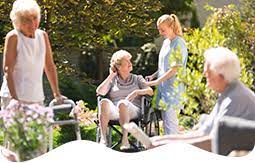Creating Community: The Role of Social Workers in NDIS Social Groups
Every person deserves connection. For people with disability, genuine inclusion often starts with community — and that’s where NDIS social workers come in. These professionals are more than just coordinators or administrators. They help participants access life-changing group activities, from art sessions and sports clubs to music, gardening, and volunteering. The outcome? Friendship, purpose, and independence.
In this article, we break down what a NDIS social worker does, how they support access to ndis social groups, and why these programs are essential to participant wellbeing.
What Does a NDIS Social Worker Actually Do?
A NDIS social worker supports people with disability by helping them use their funding in meaningful ways — especially in social and community participation. Their job involves more than paperwork. They work with participants, families, and support coordinators to find the right mix of group activities that suit a person’s interests, personality, and goals.
Some of their key responsibilities include:
- Supporting access to ndis social groups that build skills and confidence
- Helping participants transition from isolation to active community life
- Liaising with providers to ensure group settings are inclusive and safe
- Advocating for services that reflect each person’s preferences and rights
Whether it’s joining a weekly art workshop or participating in a fitness program, social workers often play a crucial behind-the-scenes role in making it all happen.
Why NDIS Social Groups Matter
Social isolation affects people with disability at disproportionately high rates. According to the Australian Institute of Health and Welfare (AIHW), over 40% of adults with disability experience loneliness, compared with 22% of people without disability.
NDIS-funded group programs are designed to address this by offering spaces to:
- Build peer connections and form friendships
- Develop social and communication skills
- Explore hobbies, sports, arts, and more
- Boost mental health and wellbeing
Importantly, ndis social groups are about much more than simply “being occupied”. They’re a platform for agency and self-expression — especially when the activities are participant-led.
The Link Between Social Workers and Participant Outcomes
The work of a NDIS social worker can be the difference between someone attending a weekly group or staying home due to barriers. That might include transport issues, anxiety, sensory needs, or simply not knowing what options are available.
Here’s how social workers help bridge that gap:
- Goal Alignment: They connect the dots between a participant’s NDIS goals and available ndis social groups.
- Empowerment: Instead of making decisions for participants, they support informed choice and active involvement in selecting group programs.
- Consistency: They follow up and monitor engagement, ensuring the experience stays supportive and beneficial.
Take James, for example — a young man with autism who was struggling with anxiety and routine disruption after high school. His social worker introduced him to a local technology club funded under NDIS, where he now builds robotics with peers. James has not only found friends but also a future career path.
What Makes a Good NDIS Social Group?
Not all group programs are equal. A successful one doesn’t just tick the boxes — it helps participants feel seen, valued, and motivated. While NDIS funding makes these groups possible, it’s the delivery that shapes the outcome.
Top traits of impactful NDIS group programs include:
- Consistent facilitators who understand individual needs
- Small group sizes for comfort and safety
- Clear structure with space for flexibility
- Inclusive activities that suit different ability levels
- Accessible venues and communication supports
Social workers often vet these programs ahead of time and talk with participants after sessions to ensure the fit is right.
How Participants and Families Can Start
If you’re new to the NDIS, or unsure how social group funding works, don’t worry. Social workers — especially those trained in community participation — can guide you through the planning and implementation steps.
Most group-based supports fall under the “Capacity Building” or “Core Supports” categories. A well-prepared plan can include weekly, fortnightly or even holiday-based ndis social groups, depending on your goals.
To see real examples of what group programs look like, visit ndis social groups and explore activities already changing lives across the country.
Real-World Impact: Group Programs That Change Lives
Consider these simple but powerful examples of how social groups improve wellbeing:
- Sarah, who lives with cerebral palsy, joined a painting group and went on to sell her artwork at a local market.
- Daniel, previously non-verbal in social settings, now leads warm-ups at his weekly inclusive soccer club.
- Tina, a teenager with intellectual disability, discovered her love of animals during a group volunteering trip to a local shelter.
Each story is a reminder that inclusion isn’t a buzzword — it’s a lived experience. And social workers are the quiet champions making it possible.
Final Thoughts
A NDIS social worker is more than an administrative contact. They’re enablers of connection, independence, and joy — often working behind the scenes to ensure participants don’t just receive services but live fully within their communities.
For participants, families, and carers looking to enrich daily life, joining ndis social groups can be a transformative step. With the right support, a group activity can become the spark that lights up someone’s week — or even their future.
Explore how ndis social groups might be the next step in your journey:
ndis social groups

